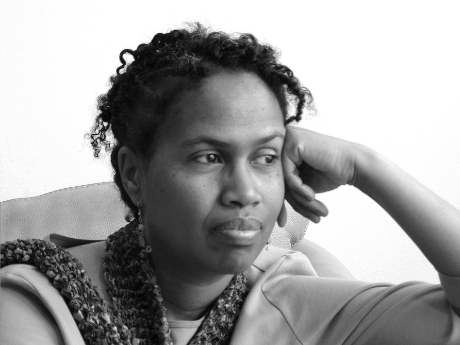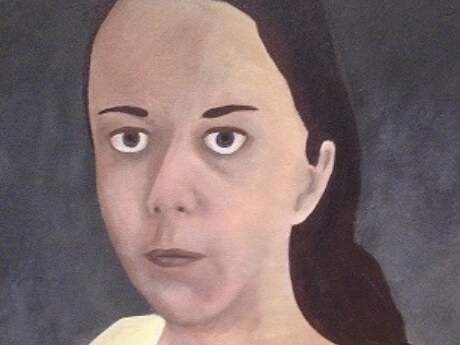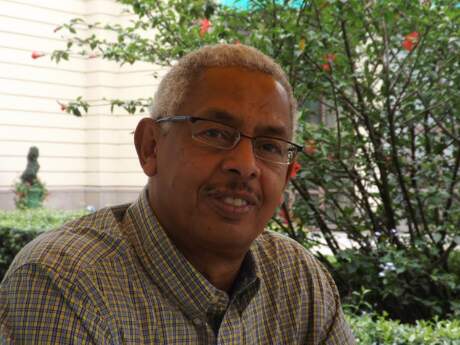New American Poets
New American Poets: Janice N. Harrington

When did you set your foot on the path of poetry? Did you feel a sudden bolt? Or did you grow gradually more passionate about poetry?
A steadily growing passion. My experience with poetry evolved and grew from family storytelling, playground chants, the rhythms of the Black church, the literary canon studied in the parochial school curriculum of the 1960s, the Black Arts Movement, and, finally, the revelation of seeing a live performance of Ntozake Shange's For Colored Girls Who've Considered Suicide When the Rainbow Is Enough. But I never really started writing until later in life.
Is there a collaborative element to your writing process and what do you think it is?
All writing is collaborative in the sense that writers speak to other writers. Poetry is always a dialogue with other poets.
Are there poems, poets, or anthologies that have opened up or radically altered your ideas of what can be done in poetry? How did they do that?
Every poem gives me a chance to rethink my work. Douglas Kearney, whom I first met at a PSA reading, writes inventive experimental poetry. He allows members of the audience to shape the readings of his poems. How can you involve your readers in the act of creation? How do you convey that a poem can have many different readings? How do you prove in a material way that words are slippery? I have read and re-read his work, looking at how he wrestles with those questions and weighing the answers in my own work and readings.
Are there aspects of painting or photography or dance or video art or music or architecture or theater or film or any other art inform your own poems or that your poems are in conversation with? If so, how?
Right now, I'm preoccupied with writing about folk artist Horace H. Pippin and his paintings.
Did you start off with an idea that your book grew around? Did you move away from that idea as the book progressed?
Often I work with a grain of memory, and the poems come in layers around that grain or grains. I let my mind follow its obsessions and trust that the unity will come.
Are you interested in the relationship between poetry and politics? Do you believe that your own poetry has political implications?
There are no apolitical poems. There are no apolitical readers. The shadow of the political moment lingers in every poem. I can't imagine a language that stands outside the political/social moment when a poet lives or works.
Language is always political.
Do you think that your poetry or poetry in general speaks to spiritual or religious yearnings and struggles? If so, how?
Poetry is a means of paying attention, but to what do we attend? An inner spirit? The Unseen? The questions we want to ask but know that we will never answer? Or maybe poetry is simply a means of shouting back, raising a fist before the face of an immense unknown and seemingly dispassionate mystery that surrounds our daily lives. "Faith is avarice. / Doubt covets," I have written in "The Thief's Tabernacle."
We want to know and we want to enjoy both the material world and the spiritual world: avarice. Doubt wants faith's certainty and greedily wants to understand everything, but cannot. They can be one and the same—in doubt some faith, in faith some doubt. My work moves between both estates.
* * *
THE THIEF'S TABERNACLE
I am stealing the golden vessels of the Egyptians to build a tabernacle to my God from them, far far away from the boundaries of Egypt. If you forgive me, I shall rejoice; if you are enraged with me, I shall bear it.
If I steal the wan light from these penitent clouds
and take from their pewter cups dull coins of rain,
if I plunder
Somewhere there's music
How faint the tune
Somewhere there's heaven
How high the moon
and lift the rifle-crack riffs
of calving icebergs, and pinch plastic wads
from the bellies of white-tailed deer,
if I purloin protons, all the negative numbers,
and seven of Cantor's infinities,
if the world's sweetness drips from my lips—
syrupy, nectareous, honey-wined cascades
of sweetness between full lips—
if I steal distance, the shifting sandhills, and every
syllable of Susquehanna, sultry, and solitude,
if I am stealthy and sly, and despite
securities, spider over the ledge to burgle
and leave you like the echo
of a man weeping in an abandoned house,
if I steal your grey-haired fear, the way
you wake each night to worry,
if I finger the last, morning-lit moment,
seconds before you swing
your legs to step into it—will you forgive me?
Faith is avarice.
Doubt covets.
I build a house for us. Rejoice.
* * *
"The Thief's Tabernacle" from Even the Hollow My Body Made Is Gone, BOA Editions, 2007. All Rights Reserved. Reprinted with the permission of the author.



